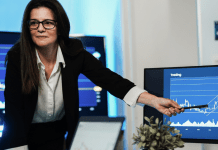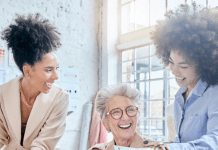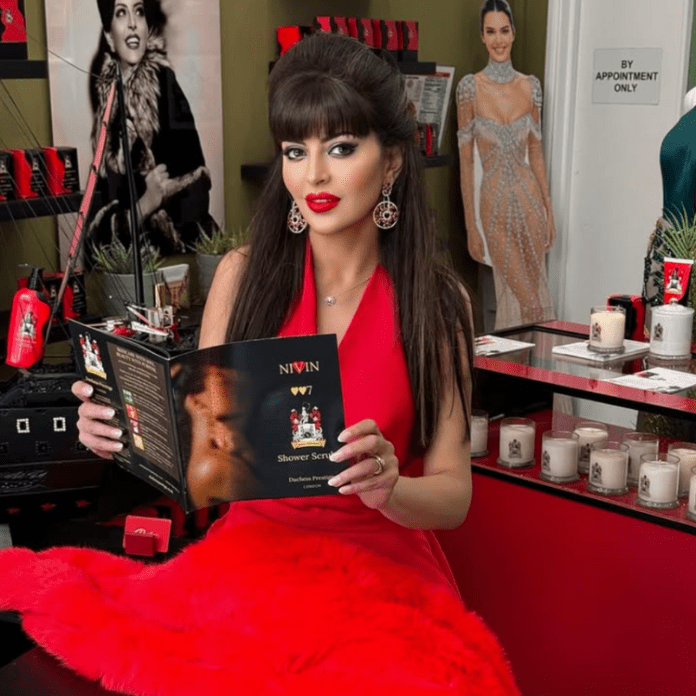Life has tested Duchess Nivin ElGamal in ways few could imagine—from navigating personal battles to carrying the weight of responsibility across business, charity, and diplomacy. Yet rather than allowing hardship to define her, she chose to transform it into strength. Today, she stands as a woman of resilience and vision: building businesses that empower, founding charities that save lives, and using every role she holds to serve others. Her journey is not just about survival—it’s about turning struggle into purpose, and purpose into legacy.
“We fight poverty not with charity alone, but with education, fairness, and hope.”
How do you manage all the different roles you hold and still stay true to yourself?
Honestly, it’s all about remembering why I do what I do. Every role I hold—whether in business, charity, or diplomacy—links back to one purpose: helping people. I’ve been through long battles myself, so I know how easy it is to lose your center. Staying true to myself means using every title and responsibility in service of others, not the other way around.
What parts of your heritage have shaped the way you lead and make decisions?
Growing up in Egypt shaped me deeply. I was surrounded by culture, faith, and family, but I also faced hardship. That mix taught me resilience and gave me a strong moral compass. When I lead, I always try to balance tradition with fairness. It’s about honoring where I come from while opening doors for others.
What made you start your own cosmetics brand, and what does it mean to you?
Duchess Prestige was more than a business idea—it was personal. I wanted women to feel not just beautiful, but confident and valued. For me, beauty is inner strength shining outward. Building the brand gave me a chance to combine creativity with empowerment. It’s really a statement that women can define elegance on their own terms.
Why is healthcare—especially for people with immune challenges—so close to your heart?
My son’s health journey changed everything for me. Watching him struggle with immune deficiencies made me realize how many families live with fear and uncertainty. That’s why I founded the Sheikh Saeed bin Ahmed Al-Maktoum Charitable Foundation. Healthcare, for me, isn’t just policy or charity—it’s a lifeline, an act of love.
How does your faith or spiritual background guide the way you live and work?
Faith has been my anchor. From studying at Al-Azhar to working with interfaith groups in London, I’ve learned that real spirituality is about respect and compassion. It guides my decisions, how I raise my son, how I do business. For me, faith is about building bridges—between people, between communities, between nations.
What does “sustainable development” look like in your daily life or projects?
Sustainability is about leaving something lasting. In business, it means ethical practices. In charity, it means building programs that communities can carry forward themselves. I never want to create something that fades away when I step back—it has to empower the next generation.
Can you share a moment from your charity work that really touched you?
There was a child we supported who finally got treatment for an immune condition. I’ll never forget the look in their eyes, or the relief on their mother’s face. It reminded me that behind every statistic is a real family, a real story. That moment gave me strength to keep going through challenges.
What do you think helps people of different faiths truly understand each other?
Listening—truly listening. Not to argue, but to learn. When people share their hopes and struggles, walls come down. I’ve seen faith communities unite around healthcare and education, and in those moments, differences don’t divide us—they enrich us.
What message do you hope people take from your story and work?
That hardship doesn’t define you—it can refine you. My journey from Egypt to London, through court battles and personal challenges, taught me that resilience and compassion can turn pain into purpose. I hope people see that if you stand firm in your truth, you can make your struggle a source of strength for others.
When you think about the future, what kind of impact do you want to leave behind?
I want to be remembered as someone who built peace and empowerment. If children grow up healthier, if women feel stronger, if communities come together across faiths and borders—that’s the legacy I hope for. The seeds I plant today, I pray, will grow into a more compassionate tomorrow.













